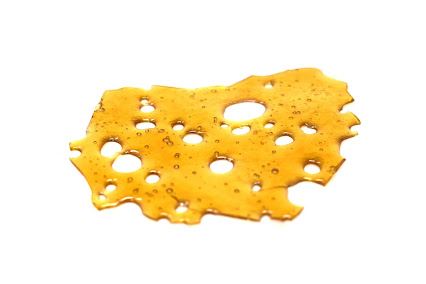The Medical Benefits of THC Distillate: What Conditions Can It Treat?
In recent years, there has been a growing interest in the therapeutic potential of cannabis and its various compounds. One such compound that has gained significant attention is THC distillate. THC, short for tetrahydrocannabinol, is the psychoactive component of cannabis, and distillate is a highly refined form of THC. While THC is known for its recreational use, it also possesses a wide range of medical benefits. In this blog, we will explore the potential medical applications of THC distillate and the conditions it may effectively treat.
Understanding THC Distillate
THC distillate is a concentrated form of THC that is derived from cannabis plants. The distillation process removes impurities, leaving behind a clear, potent liquid that is rich in THC. This high purity allows for precise dosing and makes it a versatile option for medical use. THC distillate can be consumed in various ways, including vaping, tinctures, edibles, and topicals.
Medical Benefits of THC Distillate
- Pain Management: One of the most well-documented medical benefits of THC is its ability to alleviate pain. THC interacts with the body's endocannabinoid system, which plays a crucial role in regulating pain perception. By binding to cannabinoid receptors, THC can help reduce both chronic and acute pain. This makes THC distillate a valuable option for individuals suffering from conditions like arthritis, neuropathy, and migraines.
- Anxiety and Depression: THC distillate, when used in controlled doses, may also have a positive impact on mental health. Some patients report experiencing reduced symptoms of anxiety and depression after using THC products. However, it's essential to note that the relationship between THC and mental health is complex and can vary from person to person. High doses of THC can exacerbate anxiety and paranoia in some individuals, so cautious and responsible use is crucial.
- Nausea and Vomiting: THC has long been used to combat nausea and vomiting, particularly in cancer patients undergoing chemotherapy. THC distillate's high potency allows for effective relief from these symptoms, making it a valuable tool in managing the side effects of cancer treatments.
- Appetite Stimulation: Another well-known effect of THC is its ability to stimulate appetite. This can be especially beneficial for individuals who struggle with eating disorders, wasting syndrome, or as a side effect of certain medications. THC distillate may help these individuals regain their appetite and maintain a healthier body weight.
- Sleep Disorders: Insomnia and other sleep disorders can significantly impact one's quality of life. THC distillate, in lower doses, may promote relaxation and help individuals fall asleep more easily. However, it's important to use it judiciously, as higher doses can lead to disrupted sleep patterns.
- Neurological Conditions: Some studies suggest that THC may have neuroprotective properties, making it a potential treatment for neurological conditions such as multiple sclerosis (MS) and epilepsy. While research is ongoing, some patients with these conditions have reported improvements in their symptoms after using THC-based products.
- Muscle Spasms and Spasticity: Muscle spasms and spasticity can be debilitating symptoms for individuals with conditions like MS and spinal cord injuries. THC distillate's muscle-relaxing properties may provide relief from these symptoms, improving mobility and overall quality of life.
- Inflammation: Chronic inflammation is at the root of many health problems, including autoimmune diseases and inflammatory bowel diseases. THC has been shown to have anti-inflammatory properties, which may help manage the symptoms of these conditions.
- Glaucoma: THC has been investigated for its potential to reduce intraocular pressure, a major risk factor for glaucoma. While other treatments are often preferred, THC may be considered as an alternative in cases where conventional therapies are ineffective.
Conclusion
THC distillate, with its high potency and versatility, holds promise as a valuable tool in the realm of medical cannabis. However, it's essential to approach its use with caution and under the guidance of a healthcare professional, especially due to its psychoactive effects. Additionally, the legal status of THC and THC-based products varies from place to place, so it's crucial to be aware of local regulations.
While THC distillate shows great potential for treating a wide range of medical conditions, further research is needed to fully understand its efficacy, optimal dosing, and potential side effects. As our understanding of cannabis compounds deepens, it is likely that THC distillate will play an increasingly important role in the field of medical cannabis, offering relief to patients suffering from various health conditions and improving their overall quality of life. Always consult with a healthcare provider before incorporating THC distillate into your treatment plan to ensure it is the right option for your specific needs.



Comments
Post a Comment